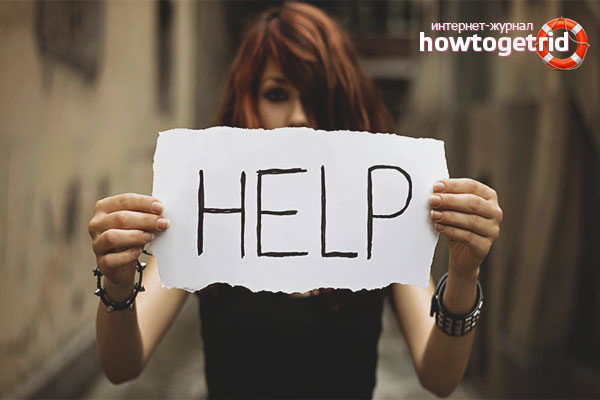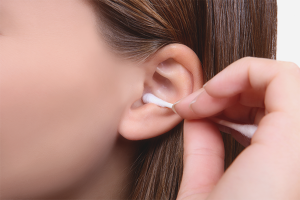The content of the article
Everyone knows that living with an alcoholic is hell. But only one who has a drinker in the family can really say how hard it really is. Constant screaming, swearing, dirt, lack of money, psychiatric hospitals, police drives and even beatings. All this is accompanied by constant pleas for giving up the bottle, worries, persuasions and sleepless nights. The worst thing is that this is seen by children, whom it is almost impossible to isolate from the drunk parent.
But the worst thing is that close people themselves create the conditions for him to drink. How is this possible, you ask? After all, relatives wholeheartedly want their loved one to get rid of the green snake. However, some aspects of their behavior only contribute to the development of addiction.
How to determine that you are addicted to an alcoholic
- You do not share your loved one and his illness. You don’t understand that two personalities are hiding in him, the first is a good person, a kind family man and a wonderful father. The second is an aggressive drunkard who can hit or insult everyone around. When you show pity, you pity the disease, not the person. If you see how an addicted person suffers after another party, you pity him and bring a bottle of sober - you encourage the disease, even more calling it into the house. There can be no excuses in the form of “Only one glass”.
- If you have taken responsibility for the life of a dependent person, you are also co-dependent. It is impossible to solve problems for him, to shield him in front of society. Consider the usual situation. The husband got drunk and fell asleep in the entrance. A caring wife carried him somehow into the house (what the neighbors would say), undressed and put him to bed (so that the children would not see). I saw that the jacket was torn and dirty - sewn up and washed so that people would not say anything. I could not get to work in the morning - I called my superiors and said that I had a cold. How can a husband not drink in such comfortable conditions? What should he worry about if his wife solves all the problems that arose? A woman does not allow him to feel the seriousness of the situation, smooths the corners.
- Co-addicted people often say "we tried our best." They do not say "he tried to be treated." Often, co-dependent people are characterized by the pronoun "we, us." You need to be able to separate your sick spouse, brother, son from your healthy person.
- If you are constantly in a state of anxiety, stress and the expectation of another binge, if you check your pockets and bags, you are dependent. It is impossible to live in a state of fear for a long time - health and the body fail.
- Co-dependent people often curse with their drunkard and scold him. If someone from the outside also began to stand up against him, they zealously defend him. For example, often the wife herself calls the police outfit, and when they want to take her missus to the department, she cries and does not let him in. This is the typical behavior of a co-dependent person. Separate yourself from him. You are a healthy person who is able to bear responsibility for your actions and there is an alcoholic who is prone to his weaknesses. You must understand that this is not care and compassion, this is wrecking. You harm your loved one. You indulge his illness. Leave him alone with your problems. Sobering up, he will realize that he has gone too far.
Alcoholism is a terrible disease. And if you hide from the binges surrounding him - this will not do him any good. Co-dependence contributes to the development of the disease. By doing so, you are doing a person a disservice.
Co-dependence is a family problem. Psychologically, it is equal to alcoholism and it is not easy to get rid of it. The first step in treating co-dependence and alcoholism is to recognize the problem.The realization that "I am really sick, I need the help of a specialist." Acceptance of the problem and consent to treatment is already half the successful outcome.
How to get rid of co-dependence
- Stop indulging a drinking family member. You must not compromise. It is necessary to convince him that he is sick and he will not be able to cope with this disease on his own. Make your husband a condition - if you drink, I will not cook for you. Or "I will not talk with you about anything other than treatment." It’s not necessary to set impossible conditions - if you drink again, I’ll divorce you. You still can’t fulfill this promise. Set strict conditions and unquestioningly follow them. This is the first step towards healing, doctors say. They advise to hold on until the alcoholic surrenders and consults a psychologist and other specialists. After all, sometimes the most difficult thing is to bring the drunkard to the first appointment.
- Understand that an alcohol dependent person is not a child, not a mentally ill person. Stop protecting and patronizing him, he is an adult who must be responsible for his actions and actions. Give him the opportunity to solve some family problems himself. Do not clean after him, do not wash clothes soiled during festivities, do not solve problems with traffic cops, doctors and colleagues. Let him do it himself - he did all this on his own, without your help.
- Show him that you are healthy. Show that you and other family members have a different, healthy life. Share your impressions, tell us at dinner that you used to go to the zoo with your children, and tell us how fun it was. A dependent person should understand that he is always expected in that healthy family. That they love him and do not repel, but are not going to put up with a bottle. Show him that you accept him, but not his addiction.
- Do not get hung up on it. Co-dependent people consider a drunkard their “cross," which they must bear in life. You can not turn it into a burden. Take care of yourself and the children. Take care of your physical and psychological health, how long have you looked in the mirror? Show love and attention to the children that they saw recently, except for drunkenness and abuse? Separate your life into which entry is forbidden with alcohol.
- Understand that the best thing you can do is to offer treatment. Everything. You can’t do anything more useful for a person. Be aware of this. Do not make a family secret out of this serious problem - you only exacerbate the situation.
- If you want to talk, choose the right time for this. It is best to talk when there are some consequences of drinking - debts have come up or a wrecked car is found. During a conversation, a person should be sober and calm, exactly like you yourself. In the conversation, pay attention to what alcohol leads to. Do not blame or blame, but offer to help. By that time, you need to find out about the specialists and centers that work in your city, so that with the consent of the addict you immediately know where to go.
- Think about who might be authority for your spouse, brother, or son. Ask this person to speak with an alcoholic. Sometimes drinkers need a conversation so that they understand what they are turning their lives into. Examples of recovering alcoholics are very obvious, they themselves went through all this and will be able to find the right words.
Treatment of co-dependent relatives is one of the main tasks in the centers for treatment of alcohol and drug addiction. Indeed, co-dependent people suffer no less than alcoholics. Being in constant fear and stress, a person loses his health. He has diseases of the cardiovascular system, disruption of the internal organs. Often such people suffer from headaches, hypertension, insomnia, and digestive tract disorders. Look at the wives of alcoholics - from constant worries, they quickly age, become gray and unhappy.
Co-dependent people have more difficulties than alcoholics, because the latter see everything through the prism of alcoholic intoxication. Sadly, co-dependent people die faster. Hopefully, this is a strong enough argument to get rid of alcohol addiction.
If after a long struggle nothing helps you, leave. Go far to save your life. If an alcoholic does not want to be treated after all persuasion and tears, nothing will change him. If you do not want to spend the rest of your life in suffering, pain and anxiety - isolate yourself from this person. Nothing will help him, but you can still be saved.
Video: addiction and alcoholism











Submit